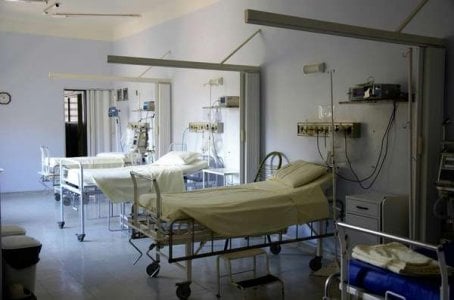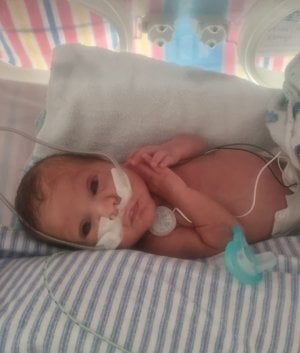Aussie fights for life with meningococcal disease. What signs should seniors watch out for?
By
Danielle F.
- Replies 41
Health is paramount, especially for seniors who may be vulnerable to diseases.
In a sobering reminder of the dangers of infectious diseases, a South Australian teenager's critical health battle prompted authorities to issue an urgent warning to the public.
A 14-year-old girl from Adelaide has been hospitalised with the serogroup B strain of meningococcal disease.
If left untreated, the condition could escalate rapidly and become fatal.
The case marked the 28th instance of meningococcal disease reported in South Australia this year—a significant increase from the 21 cases recorded in 2023.

The University of Sydney recorded over 80 cases in 2024, which emphasised the need for vigilance nationwide.
The Neisseria meningitidis bacteria cause meningococcal disease and is notorious for its rapid onset and progression.
It requires immediate attention, and while rare, its highly contagious nature makes it a serious public health concern.
The disease could lead to severe brain damage, loss of limbs, and death if left unattended.
Groups vulnerable to the disease include infants, young children, adolescents, and young adults.
Vaccines cover several common strains of the bacteria, including A, B, C, W, and Y.
However, no vaccine offers complete protection against all strains yet.
It's essential to be aware of the symptoms of meningococcal disease and to seek immediate help.
Symptoms of meningococcal disease resemble those of the flu.
They can include fever, headache, neck stiffness, vomiting, sensitivity to light, muscle pain, and confusion.
One of the telltale signs is a distinctive rash that may start as red patches.
These patches later on turn into purple pinprick spots or large bruises.
The extremities, such as hands and feet, may also feel unusually cold.
If unattended, patients may experience altered consciousness and seizures.
Symptoms in young children and infants could be subtle.
These include being floppy or unusually tired, having pale or blotchy skin, refusing to eat, and irritability, such as difficulty waking or high-pitched crying.
The recent case in Adelaide underscored the importance of vaccines and recognising the early signs of meningococcal disease.
South Australia Health has already identified and contacted everyone who is in close contact with the affected patient, as early intervention should prevent the disease from spreading.
Members, particularly those with young grandchildren, should be mindful of these symptoms.
If you or your grandchildren show any of these signs, seek medical help immediately.
Early diagnosis and treatment can be lifesaving.

Have you or your loved ones been vaccinated against meningococcal disease? Do you have any experiences to share that could help others recognise the signs? Share your thoughts and experiences with us in the comments section below.
In a sobering reminder of the dangers of infectious diseases, a South Australian teenager's critical health battle prompted authorities to issue an urgent warning to the public.
A 14-year-old girl from Adelaide has been hospitalised with the serogroup B strain of meningococcal disease.
If left untreated, the condition could escalate rapidly and become fatal.
The case marked the 28th instance of meningococcal disease reported in South Australia this year—a significant increase from the 21 cases recorded in 2023.

Meningococcal disease patients have increased over the past year, prompting warnings from health agencies. Image Credit: Pexels/Pixabay
The University of Sydney recorded over 80 cases in 2024, which emphasised the need for vigilance nationwide.
The Neisseria meningitidis bacteria cause meningococcal disease and is notorious for its rapid onset and progression.
It requires immediate attention, and while rare, its highly contagious nature makes it a serious public health concern.
The disease could lead to severe brain damage, loss of limbs, and death if left unattended.
Groups vulnerable to the disease include infants, young children, adolescents, and young adults.
Vaccines cover several common strains of the bacteria, including A, B, C, W, and Y.
However, no vaccine offers complete protection against all strains yet.
It's essential to be aware of the symptoms of meningococcal disease and to seek immediate help.
Symptoms of meningococcal disease resemble those of the flu.
They can include fever, headache, neck stiffness, vomiting, sensitivity to light, muscle pain, and confusion.
One of the telltale signs is a distinctive rash that may start as red patches.
These patches later on turn into purple pinprick spots or large bruises.
The extremities, such as hands and feet, may also feel unusually cold.
If unattended, patients may experience altered consciousness and seizures.
Symptoms in young children and infants could be subtle.
These include being floppy or unusually tired, having pale or blotchy skin, refusing to eat, and irritability, such as difficulty waking or high-pitched crying.
The recent case in Adelaide underscored the importance of vaccines and recognising the early signs of meningococcal disease.
South Australia Health has already identified and contacted everyone who is in close contact with the affected patient, as early intervention should prevent the disease from spreading.
Members, particularly those with young grandchildren, should be mindful of these symptoms.
If you or your grandchildren show any of these signs, seek medical help immediately.
Early diagnosis and treatment can be lifesaving.
Key Takeaways
- A teenager in South Australia was hospitalised in critical condition after contracting the meningococcal B strain.
- South Australian health authorities issued a warning, as it was the 28th case of the disease this year in the state.
- More than 80 cases have been recorded across Australia in 2024, indicating a surge in the incidence of meningococcal disease.
- Public health officials stressed the importance of early diagnosis and vaccination.









